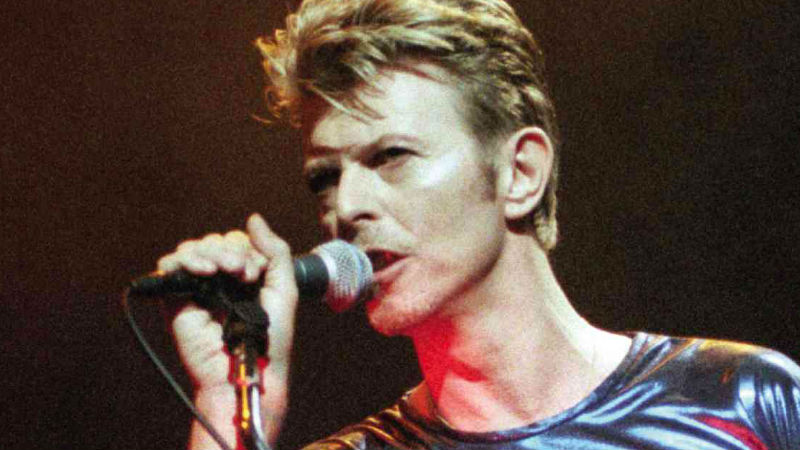Legendary rock star David Bowie dies at 69
LONDON—British music legend David Bowie has died after a long battle with cancer, his official Twitter and Facebook accounts said on Monday, prompting an outpouring of tributes for the innovative star.
A notoriously private person, Bowie’s death came as a surprise just days after he had released his 25th studio album “Blackstar” on his 69th birthday on Friday.
“David Bowie died peacefully today (Sunday) surrounded by his family after a courageous 18-month battle with cancer,” said a brief statement posted to both his Twitter and Facebook accounts.
“While many of you will share in this loss, we ask that you respect the family’s privacy during their time of grief,” it added.
His agent, Steve Martin, confirmed the musician had died. Film director Duncan Jones, Bowie’s son with his first wife Angela Bowie, confirmed the news on Twitter.
“Very sorry and sad to say it’s true. I’ll be offline for a while. Love to all,” Jones wrote on his official account.
The death brings the curtain down on one of the most acclaimed artists of modern British music, with a career dating back to the hit “Space Oddity” in 1969, about an
astronaut called Major Tom, who is abandoned in space.
Bowie’s career spanned styles ranging from glam rock, New Romantic, Krautrock and dance music to alternative rock, jungle, soul and hard rock, underpinned by an astonishing array of stage personas from the sexually ambiguous Ziggy Stardust to the so-called Thin White Duke.
Bowie had last performed in 2006 and was rarely seen in public, and it was unclear whether he died in his long-term home New York or his native Britain.
Master of reinvention
He was born David Robert Jones in Brixton, inner south London, on Jan. 8, 1947, before his family moved out to the leafy suburb of Bromley when he was 6.
In the first of many reinventions that were to make him a style icon, he named himself David Bowie in 1966 to avoid confusion with Davy Jones, the lead singer of The Monkees. He also studied Buddhism and mime.
The 1970s—the decade that saw him dominate the British music scene and conquer the United States—brought forward a string of successful albums.
The decade began with the critically acclaimed “Hunky Dory,” continued with “The Rise and Fall of Ziggy Stardust and the Spiders from Mars”—whose hits included “Starman” and “Suffragette City”—followed by the rock album “Aladdin Sane,” the apocalyptic “Diamond Dogs,” and a fling with so-called plastic soul, “Station to Station.”
He then switched gears once more, moving to Berlin to work with the electronic experimentalist Brian Eno on a trio of albums—“Low,” “Heroes” and “Lodger.”
The 1980s saw him win over a new generation with “Let’s Dance,” which yielded the hit singles “China Girl” and “Modern Love,” and a 1985 teamup with Mick Jagger for a cover of “Dancin’ in the Street” that helped push the BandAid and LiveAid charity projects.
His chameleon-like ability to reinvent his image, drawing on everything from mime to kabuki theater, was accompanied by a string of albums until heart problems curtailed his productivity in the 2000s.
Throughout his career, he appeared in films in acting and cameo roles, from his striking appearance in the cult 1986 film “Labyrinth” to playing inventor Nikola Tesla in “The Prestige” in 2006.
He surprised the world by launching a surprise single “Where are We Now?” on his 66th birthday in 2013 after a decade of silence, recalling his days in Berlin in the 1970s and hailed by critics as a major comeback.
An innovator to the end, Bowie moved away from pop into a new jazz sound in his final album “Blackstar.”
A dark work marked by tense instrumentation, a sense of dread and lyrics about mortality, the work is cast in a new light by the revelation of how ill he was when he created it.
Tributes to an icon
British Prime Minister David Cameron paid tribute to Bowie’s ability for experimentation.
“I grew up listening to and watching the pop genius David Bowie. He was a master of reinvention, who kept getting it right. A huge loss,” Cameron wrote on Twitter.
Tributes poured in from the world of music, show business and politics.
“David Bowie was one of my most important inspirations, so fearless, so creative, he gave us magic for a lifetime,” wrote musician Kanye West.
US actor Val Kilmer called Bowie a “searing genius,” while Mark Ruffalo called him “father to all us freaks.”
British comedian Ricky Gervais said he had “lost a hero,” while fellow comic Eddie Izzard appealed on Twitter for Bowie’s songs to be played.
“Please could every radio station around the globe just play David Bowie music today—I think the world owes him that,” Izzard wrote. AFP















